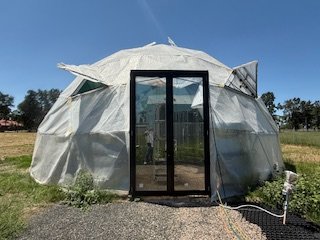
PROGRAM 4 -
Socio-economic challenges of technology integration
Program 4 Lead
Assoc. Professor Dilupa Nakandala
In Program 4, we’re aiming to identify and address the main bottlenecks slowing technology adoption and consumer satisfaction.
Our students and researchers will be trained in industry, consumer and socio-economic analyses and the interpretation of results.
Program 4 Projects
Project 4.1 - Technology extension and adoption, consumer preference for profitable systems
Chief Investigator: Nakandala
Partner Investigators: All
Technology transfer and adoption are complex processes where established theories, such as the diffusion of innovation, the technology acceptance model, TAM; and the unified theory of acceptance and use of technology, UTAUT; identify a range of adoption decision factors. These factors include the perceived relative advantage of new technologies, ease of use, complexity, visibility, trialability, and social and professional network influence.
However, the effects of these factors vary with different technologies, where recent research identified that the antecedents of adoption decisions are contingent on different types of technologies having alternative values, compatibility, costs, and the users’ knowledge competency and personal innovativeness: each with a distinct effect on the intention to adopt different new technologies.
Program 4’s students, researchers and partners will be involved in…
4.1.1. Grower adoption of new technologies
Growers’ understanding of new technologies for sustainable and profitable farming influences their technology adoption decisions.
This program will identify the adoption factors, including barriers for urban and peri-urban growers with diverse characteristics. It will also adopt innovative approaches to train growers on advanced technologies for smart and sustainable horticulture.
4.1.2. Strategic supply chain partnerships to support increased adoption of technologies
Research on Australian short food supply chains has reported the importance of upstream and downstream collaborations for adopting innovative strategies and new technologies. Targeting the whole supply chain, this should involve growers, wholesalers, retailers and other third-party logistics providers.
This program will research the current supply chain structures and emerging technologies for Australian urban and peri-urban smart and sustainable horticultural produce and incorporate stakeholders’ requirements to co-create and implement supply chain strategies for increased efficiency, product variety and profitability.
Resources for training and knowledge transfer to supply chain actors will be developed.
4.1.3. Consumer preferences and enhanced acceptance of high-tech food products
Consumer confidence in smart and sustainable horticulture is critical for market acceptance and profitability. Consumer research on food products identifies that consumers rely on cues to assess product quality. These cues can relate to both intrinsic and extrinsic attributes of products, the latter including origin of the food product and the production method.
This program will research the markets and develop and provide training on communicating the benefits of smart and sustainable horticulture to the general public.
It will also adopt new and innovative technology applications for developing and delivering information and knowledge resources to the general public.
Project 4.2 - Analysis of Technological & Social Aspects of Protected Cropping
Partner Investigator: Thomas
Industry Partners: All
This project is dedicated to in-depth exploration of technology intervention, adoption, and scaling within the realm of PC systems. It aims to decipher the complex interplay between agricultural sustainability, socio-psychological factors, and economic constructs that underpin the translation of technology in the PC domain.
The project integrates various components, including adoption studies, the development of a technology adoption framework, workshops, training programs, and an analysis of the factors influencing adoption.
The objectives of this project are:
(i) assess emerging technologies within the PC industry, focusing on socio-psychological and economic factors that shape technology adoption and scaling, and
(ii) analyse the impact of technology identification, evaluation, adoption, and scaling on profitability, inclusivity, and social advancement within the PC community.
The Benefits
Barriers to new technology adoption identified
Strategies developed to mitigate industry barriers
Improved stakeholder uptake of new innovation, tools and technologies










